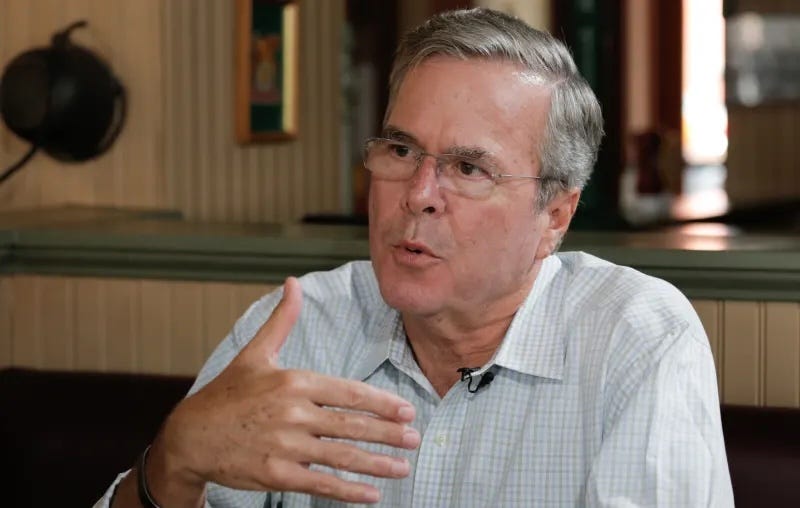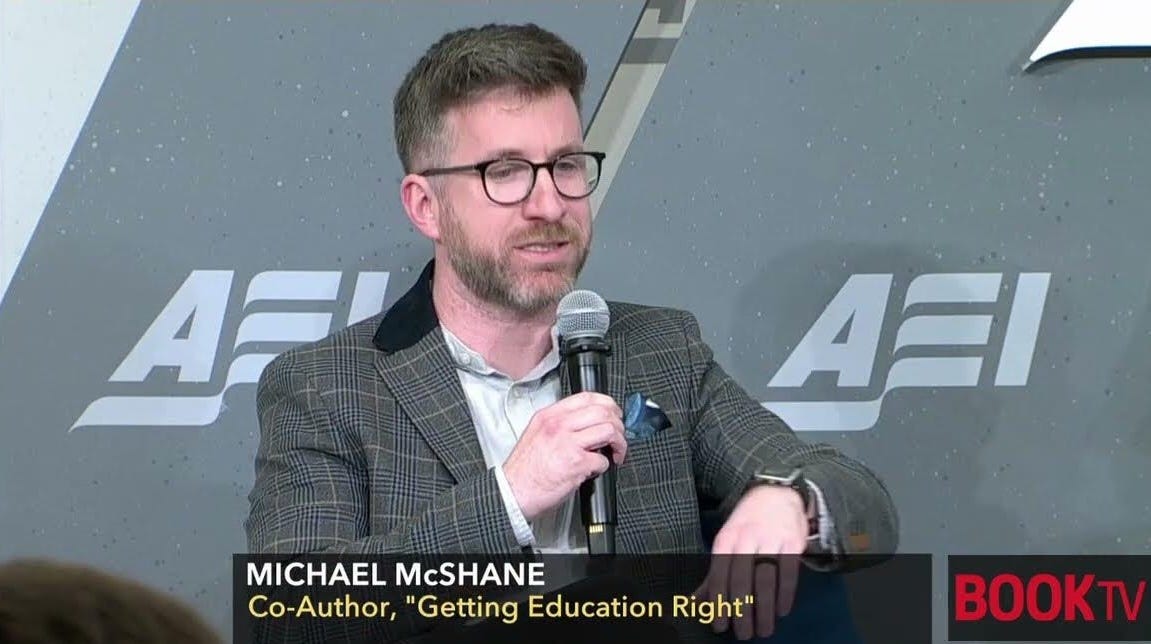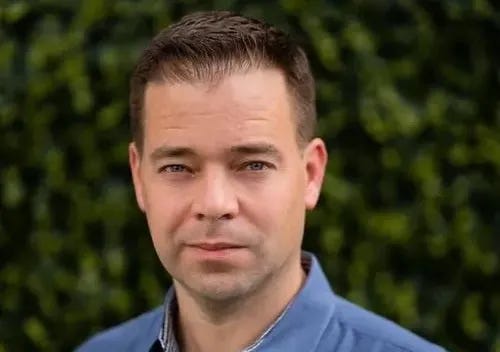Free range
FreeCons champion choice, competition, and innovation in American education
What has American conservatism accomplished?
Not much, say many nationalists and populists. They argue that the American Right as currently constituted is a failed experiment that ought to shed its longtime commitments — to “free market fundamentalism” and “mere procedural rights” — in favor of a more activist, free-spending movement that unabashedly rewards its friends, punishes its enemies, and “knows what time it is.”
Freedom Conservatives utterly reject such claims as historically uninformed, philosophically incoherent, and politically naive.
Economic freedom and limited, constitutional government aren’t outdated ideas or useless abstractions. They are practical means for maintaining law and order, raising living standards, and fostering self-government.
No other attempts at economic and political organization have ever worked so well — because they accept human beings for who we really are, rather than as social engineers would have us be.
American conservatives spent much of the past century studying public problems, developing principled solutions, and building effective institutions to espouse and implement them. Originalist jurisprudence, victory in the Cold War, and the tax, regulatory, and monetary reforms of the supply-side revolution are among their greatest achievements.
Another is happening right before our eyes: the explosion of parental choice and school competition across American education. Although COVID-era restrictions on in-person schooling — and the resulting revelation to parents of what their children were learning (or failing to learn) — were the trigger, educational freedom advanced because conservative leaders and institutions had spent decades developing the policy tools, legislative relationships, and legal precedents required to seize the political moment.
American conservatism has, of course, also committed oversights and errors — because political movements, like all human endeavors, are inescapably imperfect.
Our country faces many challenges. They range from fiscal irresponsibility and a high cost of living to persistent inequality of opportunity and declining family formation and fertility. We cited these and other challenges in the Freedom Conservatism Statement of Principles. Our signatories are working tirelessly to address them.
What distinguishes us from our nationalist-populist rivals is that we don’t believe the solution lies in abandoning our longstanding commitments to free enterprise, free trade, free speech, federalism, the rule of law, the constitutional separation of powers, and American leadership in the world. The right solution is to apply our principles more consistently and creatively — to make good on America’s promissory note, not default on it.
Today we feature FreeCons who’ve played a key role in the educational-freedom revolution and seek to expand and sustain it.
Red state blueprint
Jeb Bush is the 43rd governor of the state of Florida, serving two terms from 1999 to 2007. He is currently chairman of the board at ExcelinEd and a FreeCon signatory.
Bush was the third Republican elected Florida’s governor and the first to be reelected. During his tenure, Florida established a bold accountability system in public schools and created the most ambitious school-choice programs in the nation.
In a recent essay for The 74, Bush celebrated the Texas legislature’s adoption of education savings accounts (ESAs) and predicted the program’s effects would extend beyond the borders of that state.
“Texas has the chance to lead the way by adopting a debit card model where parents use secure accounts linked to approved expense categories instead of an endless string of applications and approvals,” he wrote.
“Think about how a health savings account debit card works to pay for everything from a doctor’s visit to a pharmacy prescription. On the back end, that system uses codes to categorize eligible purchases.”
“A similar system for education that categorizes tutoring, curriculum, therapies, classes and more would make it dramatically easier for parents to navigate their options without compromising accountability.”
“Building a modern, intuitive ESA system in Texas would do more than serve families in the Lone Star State. It would create a blueprint for every other state in the country.”
Major reworking
Michael Q. McShane is an adjunct fellow in education policy studies at the American Enterprise Institute, director of national research at EdChoice, and a FreeCon signatory. He was previously a high school teacher.
McShane is the author, editor, co-author, or co-editor of twelve books on education policy, including the most recent Getting Education Right (Teachers College Press, 2024) and Hybrid Homeschooling (Rowman & Littlefield, 2021).
He’s provided educational analysis for Wall Street Journal, National Affairs, USA Today, and Washington Post and published papers in such journals as Education Finance and Policy, Education Next, and the Journal of School Choice.
In a Forbes column, McShane described the magnitude of recent gains in educational freedom.
“Total enrollment in private school choice programs doubled from 2020 to 2025, going from approximately 540,000 to 1.2 million students,” he wrote. “With the passage of Texas’ new program, roughly half of American schoolchildren will be eligible for a voucher, tax credit scholarship, or education savings account.”
Meanwhile, enrollment in U.S. public schools decreased by 2.5 percentage points from 2019 to 2023 and does not appear to be rebounding.
“If current trends continue, and public school enrollment declines while publicly financed private enrollment grows, we could see a major reworking of our nation’s education system in a relatively short number of years.”
Win-win
Dan Lips is head of policy and a senior fellow at the Foundation for American Innovation, a senior fellow at the Foundation for Research on Equal Opportunity (FREOPP), and a FreeCon signatory.
Lips has spent decades working in public policy, including stints with the Federal Bureau of Investigation, the Heritage Foundation, the Cato Institute, and the Senate Homeland Security and Governmental Affairs Committee. He also helped birth the concept of ESAs.
In a column for RealClearEducation, Lips praised state school-choice victories as well as a federal bill to create tax credits for private donations to scholarship-granting nonprofits.
What now? He urged state lawmakers to further deregulate the schooling sector and urged federal lawmakers to integrate existing education, childcare, and even fiscal-savings programs with the cause of educational freedom.
For example, the General Services Administration (GSA) is authorized to transfer federal real estate the government no longer needs to nonprofits or local governments for public purposes, including education.
“President Trump recently issued an executive order directing a government-wide review of federal real estate property that requires the GSA to develop a plan to sell or transfer unneeded properties, which has the potential to save taxpayers billions in upkeep costs” he wrote.
“Using some of the federal government’s roughly 8,000 new properties to allow nonprofits to create new schools could be a win-win for the public.”
And in a recent piece for The Hill, Lips called for Congress to follow up state and federal progress on school choice by creating new ways for low-income parents to participate in ESAs.
“Congress should reform the $18.4 billion Title I program, which provides funds to public schools serving lower-income children, into a direct deposit program to benefit low-income children,” he wrote.
“This alone could put $1,000 into every low-income child’s 529 account. Eligible parents in the 18 states with ESAs could use state and federally funded accounts to pay for educational choice.”
In the mix
• In a recent edition of Dividend Cafe, FreeCon signatory David Bahnsen summarized several decades of fiscal and economic data and sketched out a plan to shrink Washington’s chronic budget deficits.
Changes to Social Security and Medicaid benefits will be necessary, he argued, along with converting Medicare into premium support and adding a balanced-budget requirement to the federal constitution.
The founder, managing partner, and chief investment officer of The Bahnsen Group also proposed slashing pay on Capitol Hill whenever publicly held federal debt exceeds 100% of the country’s gross domestic product.
“I do not believe this will ever happen,” Bahnsen wrote, but “I do believe that if it did, it would work.”
• Several FreeCon signatories will speak at the upcoming Women’s Public Leadership Network National Summit, to be held June 5-7 in Orlando.
In particular, the panel “Freedom Conservatism in Action: What Women Leaders are Watching in Washington” will feature Iron Light CEO Carrie Conko, Prospera Insights founder Laura Maristany, and Josselin Castillo, principal for federal government relations at the National Federation of Independent Business.
• In a recent post, Freedom Conservatism co-founder Avik Roy pointed out that because of Medicaid’s flawed eligibility rules and funding formula, it now costs taxpayers more to subsidize coverage for low-income Americans through Medicaid ($8,527 per enrollee per year) than through the health exchanges created by the Affordable Care Act ($6,714).
“If we swapped everyone in the Medicaid expansion into the exchanges and factor in the fact that some ACA enrollees get a partial subsidy whereas Medicaid enrollees get a full ride,” wrote Roy, chairman of FREOPP, “I estimate the federal government could save approximately $159 billion from 2025–34.”




